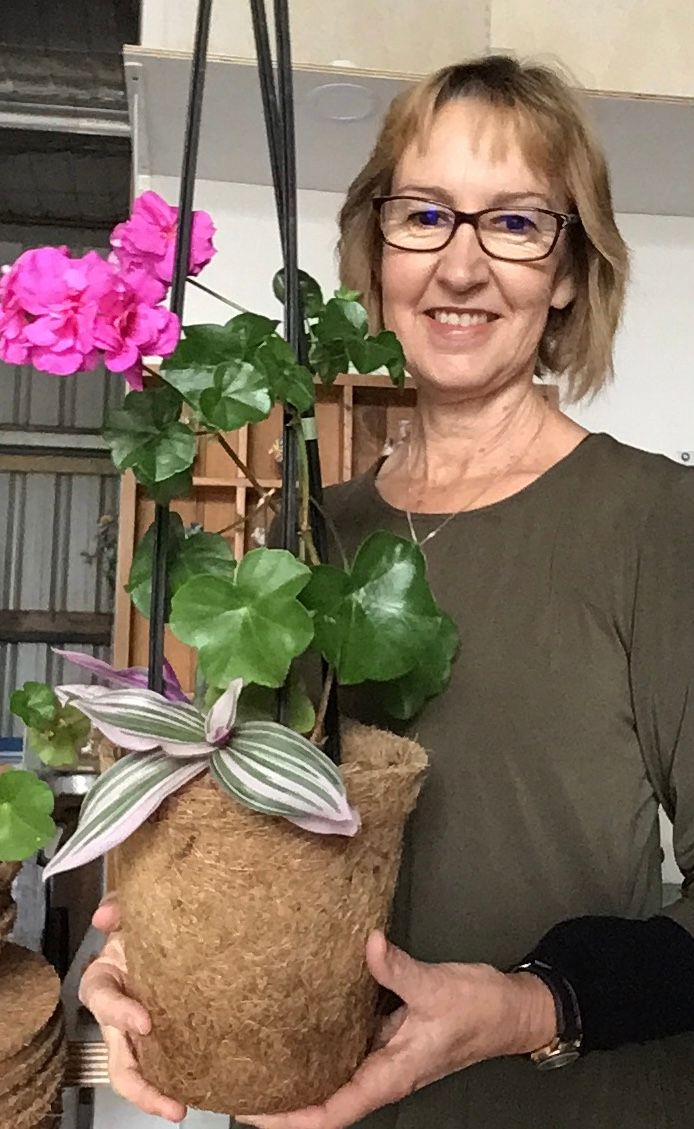
Blog
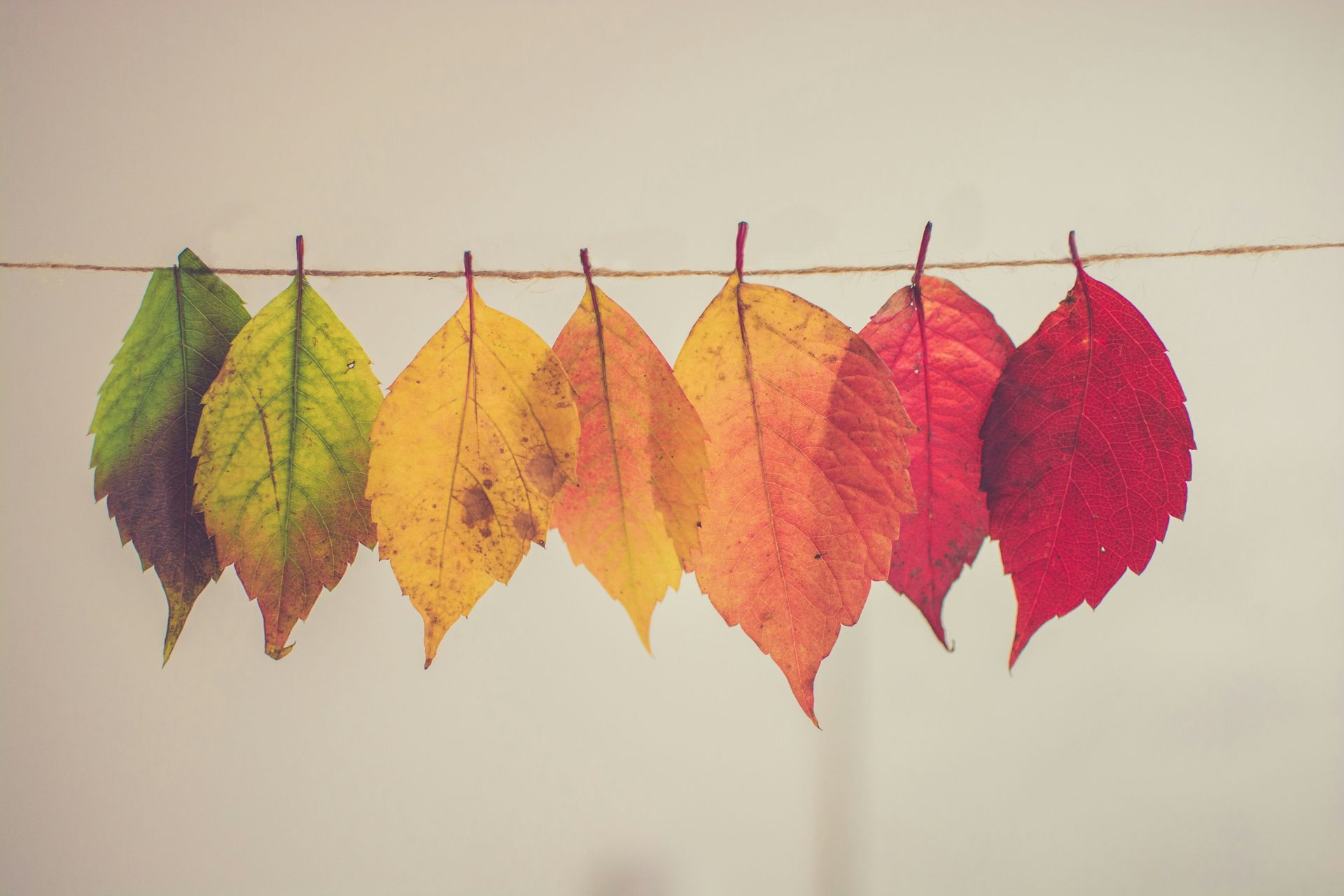
By Karen Mott
•
23 Apr, 2024
Gardeners face new challenges and opportunities as the months transition to colder and wetter days in Victoria, Australia. April brings the promise of growth and renewal and the need for extra care to protect our plants from the elements. At GuardnGrow, we understand the importance of nurturing your garden through every season. We're excited to share expert tips for making the most of your April garden using our innovative coir fibre products. Embracing Coir Fibre for Enhanced Gardening: One of the most effective ways to safeguard your plants against the unpredictable April weather is by utilising coir fibre matting. Unlike traditional mulches that can be easily displaced by wind or heavy rain, our GuardnGrow weed mat provides a durable and long-lasting solution to protect your plants from weeds, harsh weather conditions, wind, dust, extreme heat, winter frosts, and low rainfall. Enhance Your Gardening Success with GuardnGrow Coir Fibre Products - Prepare Your Garden Beds: Begin by layering your garden beds with high-quality compost. Install a dripper irrigation system for efficient watering. Use GuardnGrow coir fibre matting to suppress weeds and retain moisture. - Utilise GuardnGrow Coir Fibre Pots: Choose GuardnGrow coir fibre pots for your potted plants. Benefit from excellent drainage and aeration, promoting healthy root growth. - Maintain Proper Watering: Water your plants regularly, especially during dry spells. Coir fibre retains moisture effectively, ensuring your plants thrive. - Protect Plants from Frost: Safeguard tender plants from frost by covering the soil with a GuardnGrow weed mat. This protective layer insulates roots and retains soil warmth. Eco-Friendly Solutions: At GuardnGrow, we're committed to sustainability and waste minimisation. Our coir fibre products are made from renewable coconut husks, making them a natural and eco-friendly choice for gardeners who care about the planet. Ready to elevate your gardening game with GuardnGrow? Visit our shop to explore our range of coir fibre products, including weed mats and pots, or shop anytime online . With GuardnGrow, you can trust that you're investing in quality, sustainability, and the future of your garden. This April, let GuardnGrow be your partner in gardening success. With our innovative coir fibre solutions and expert advice, you can create a thriving garden that withstands the season's challenges and nurtures growth for years. Incorporate GuardnGrow coir fibre products into your gardening routine for healthier plants and bountiful harvests. Start your gardening journey today!

By Karen Mott
•
04 Apr, 2024
As Autumn unfolds in Australia, a surprising heatwave casts its fiery spell across the region, challenging gardeners with unseasonably high temperatures. To combat this threat and safeguard your plants, consider the invaluable solution of coir fibre matting. This natural and sustainable material is derived from coconut husks and offers robust protection against extreme weather conditions while promoting eco-conscious gardening practices. Coir fibre matting's unique fibrous structure ensures soil breathability and acts as a moisture-retaining blanket, shielding plants from excessive heat and protecting them from cold snaps. Like a cosy blanket provides warmth, coir matting maintains an optimal environment for root health amid temperature fluctuations. This insulation from both heat and cold proves beneficial as we transition into the cooler months. Preparation is crucial before installing coir fibre matting. Ensure the soil is well-watered and lay the matting evenly over the surface, leaving space around the base of each plant. Secure the edges with biodegradable stakes to prevent shifting during windy conditions and maximise coverage and protection. For optimum performance, consider setting up drippers underneath the matting to provide consistent moisture to the soil. For pot plants, coir matting is available in rounds suitable to fit most pots, providing a convenient solution for potted plants of any size. Customising the matting ensures a snug fit, maintaining an ideal environment for root growth and maximising the benefits of this eco-friendly solution. Whether nurturing delicate flowers, robust vegetables, or sprawling shrubs, coir fibre matting adapts to your garden's diverse needs. Protecting Delicate Blooms and Hardy Crops Flowers: Shield delicate blooms like roses and petunias from the harsh sun, preserving their vibrant colours and preventing wilting. Vegetables: Insulate the soil around crops like tomatoes, corn, and peppers to promote healthy growth even in extreme temperatures. Shrubs: Apply coir matting around their base to protect root systems from heat stress, ensuring overall health and vitality. Coir fibre matting offers other benefits besides cooling, such as weed suppression, erosion control, and soil enhancement. Its dense structure naturally inhibits weed growth, reduces the need for herbicides, and helps prevent soil erosion, especially in areas prone to heavy rainfall or wind. As the matting decomposes, it enriches the soil with organic matter, creating a healthier and more fertile gardening environment. Embrace the versatility and effectiveness of coir fibre matting to safeguard your garden from extreme temperatures and contribute to its overall well-being. This eco-friendly solution allows your garden to thrive even in unpredictable weather conditions.
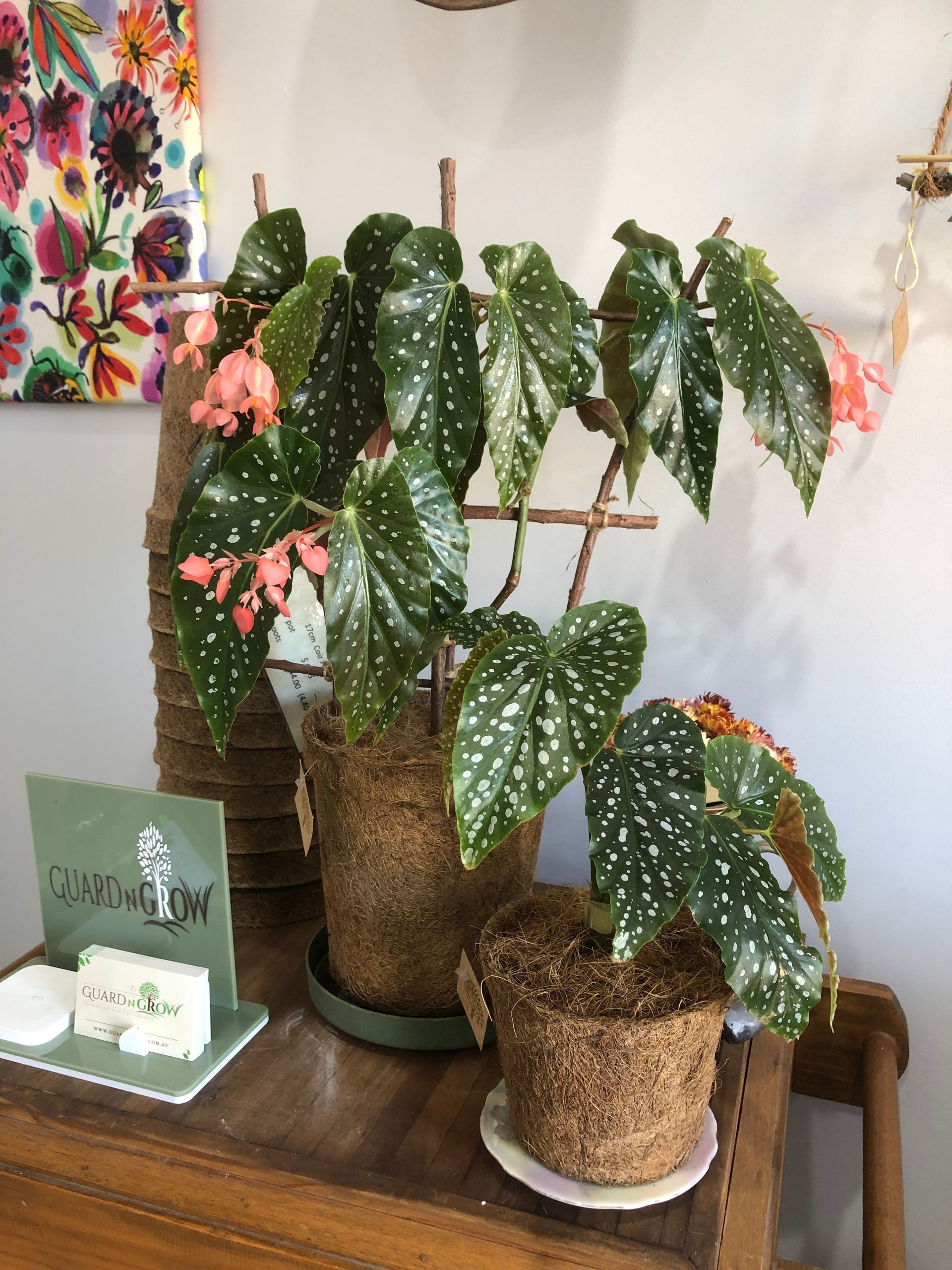
By Karen Mott
•
27 Feb, 2024
As February heralds the onset of Autumn, gardening enthusiasts find themselves drawn to the allure of nurturing new life. If you're venturing into the world of begonias, your choice of pots can make a significant difference in their growth and overall well-being. In this blog post, we explore the symbiotic relationship between begonias and coir pots, shedding light on why coir pots are the ideal companions for these delicate blooms. The Begonia Love Affair with Terracotta: Begonias, renowned for their exquisite beauty and diverse varieties, have a penchant for terracotta pots. The porous nature of terracotta allows the soil to breathe, preventing waterlogging and fostering optimal drainage. However, as we delve into the world of experimentation, we discover a game-changer for begonia enthusiasts: coir pots. Coir Pots: Lightweight, Durable, and Natural Charm: Coir pots, crafted from coconut fibres, emerge as the perfect alternative to traditional terracotta pots. Their porous composition aligns seamlessly with begonias' preference for well-drained soil, but they bring unique advantages to the gardening table. Lightweight and Manoeuvrable: One of the standout features of coir pots is their feather-light weight. Unlike terracotta, these pots are a breeze, allowing you to rearrange your garden effortlessly. This characteristic is particularly beneficial when dealing with begonias, as they may require a change in sunlight exposure or positioning to thrive. Durability in Every Drop: Coir pots, unlike their fragile terracotta counterparts, possess an innate resilience. If accidentally dropped, they won't shatter into pieces, providing a stress-free gardening experience. This durability ensures the longevity of your pots, allowing you to enjoy the begonia blooms season after season without worrying about pot breakage. Aesthetically Pleasing Natural Look: While terracotta pots boast a classic charm, coir pots exude a natural aesthetic that perfectly complements the beauty of begonias. The earthy tones and texture of coir pots enhance the overall visual appeal of your garden, creating a harmonious environment for your blooming treasures. In the journey of nurturing begonias, choosing pots is more than a practical decision; it's a partnership that can elevate your gardening experience. As February invites you to explore the possibilities of growth, consider embracing coir pots as your begonias' new best friends. Lightweight, durable, and aesthetically pleasing, coir pots provide the perfect environment for your begonias to thrive, ensuring a flourishing garden that captures the essence of the upcoming Autumn.
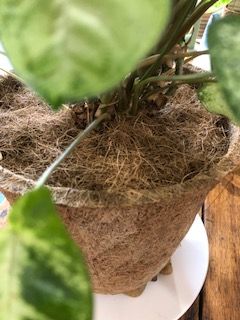
By Karen Mott
•
29 Jan, 2024
Happy New Year, fellow garden enthusiasts! As we embark on another year of growth and greenery, let's dive into sustainable gardening practices. Today, we focus on a gardening game-changer – coir fibre as a mulch. In this blog, we'll unravel the myriad benefits of coir fibre, particularly as a mulching material, to your garden. Coir fibre is a renowned soil magician known for its ability to enhance soil fertility. When used as mulch, it gradually decomposes, releasing valuable nutrients into the soil. This natural enrichment fosters a healthy ecosystem for your plants, encouraging robust growth and vitality. One of the standout features of coir fibre is its exceptional water retention capabilities. Acting as a protective layer when used as mulch, it reduces evaporation and regulates soil moisture. This is beneficial during hot and dry periods, ensuring your plants receive a consistent water supply. Say goodbye to the endless battle against stubborn weeds in your garden! Coir fibre mulch becomes your ally by forming a cover over the soil, inhibiting weed germination and growth. Enjoy a more manageable garden with reduced weeding sessions. Coir fibre mulch provides insulation to the soil, protecting it from extreme temperature fluctuations. This is crucial for the well-being of your plants, creating a stable environment that promotes optimal root development. For eco-conscious gardeners, coir fibre is a dream come true. As a natural, biodegradable material, it aligns perfectly with sustainability goals. Nourishing with coir fibre means positively impacting your gardens by using a renewable resource. Beyond its functional benefits, coir fibre mulch adds natural beauty to your garden. The earthy tones and texture create a visually pleasing landscape that complements the vibrant colours of your plants. In conclusion, the question arises: Is coir fibre a good mulch? The resounding answer is yes! Embracing coir fibre as a mulching material contributes to your garden's well-being and aligns with your passion for sustainable, environmentally friendly practices. As you continue promoting coir fibre in horticulture, consider the incredible impact it can have on your garden and the planet. Wishing you a year filled with blooming gardens and sustainable successes!
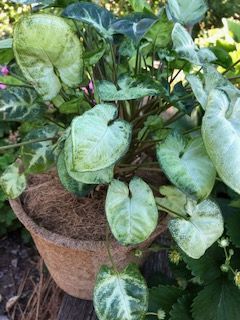
By Karen Mott
•
18 Dec, 2023
Finding moments of tranquillity is a treasure in the heart of our bustling lives. At GuardnGrow, we're excited to introduce a game-changer for your potted plants – our new Shortcut Fibres in a convenient 200-gram box. As we explore the wonders of these coir fibres, let's celebrate the art of slowing down, immersing ourselves in the joy of nurturing indoor and outdoor potted plants. Coir, extracted from coconut husks, is a sustainable and environmentally friendly choice for enhancing your plant's living conditions. Coir is renowned for its exceptional moisture retention and aeration properties, and it is perfect for your potted green companions. Our Shortcut Fibres have been carefully crafted with your potted plants in mind. Enclosed in a convenient 200-gram box, these fibres create a thriving environment that your indoor and outdoor potted plants will adore. Gardening, especially with potted plants, transcends the mundane. It's a dance of patience and care, an opportunity to slow down and relish nurturing. As you sprinkle our Shortcut Fibres into your pots, please take a moment to appreciate the tranquillity they bring to your indoor sanctuary or the outdoor haven on your balcony or terrace.
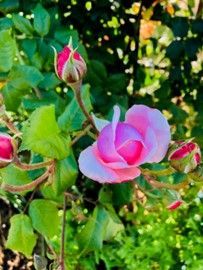
By Karen Mott
•
05 Nov, 2023
Spring has arrived, and with it comes the promise of a vibrant rose season. These moments when our gardens burst with the elegance and aroma of roses are magical. But, before you let your green thumb loose in the rose garden, let's talk about a hidden gem – coir fibre matting. It's your secret weapon for nurturing those stunning rose blooms. Coir fibre matting, a gift from coconut husks, is the gardener's best friend. It boasts incredible water retention, improved aeration, and enhanced soil structure. It's a perfect match for roses, thriving in their preferred slightly acidic to neutral soil conditions.
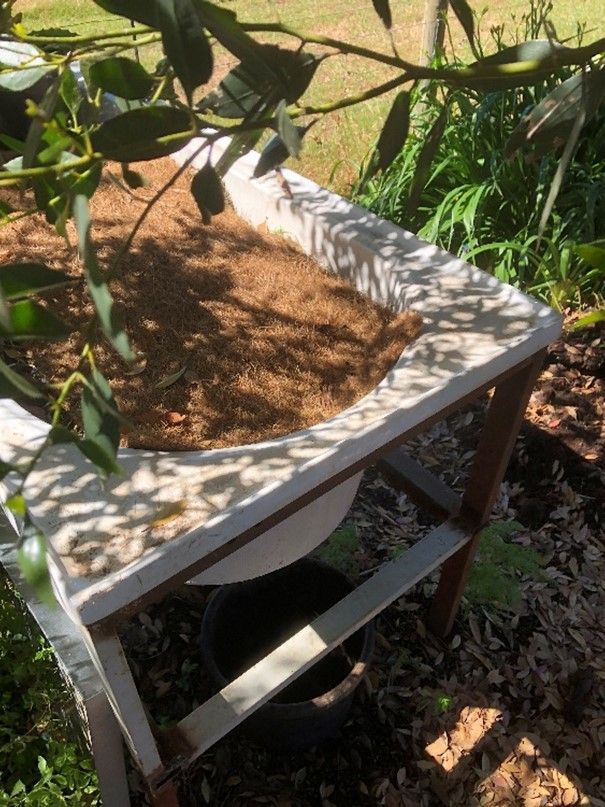
By Karen Mott
•
25 Sep, 2023
Worm farming, also known as vermicomposting, is an eco-friendly and efficient way to recycle organic waste while producing nutrient-rich compost. Worms are the unsung heroes of the composting world. They can break down kitchen scraps and other organic materials into valuable fertilizer. It doesn’t matter how big or small your worm farm is; its liquid and castings can supercharge your garden. Your worm farm can also lean into reducing wastage by utilising other objects. For example, our worm bed is an old bath, which my husband Lionel made a metal frame for it to sit up off the ground. It is now high enough to sit a bucket underneath to catch all the liquid. He also put an old dishwasher filter over the plug hole so no worms fall through.

By Karen Mott
•
24 Aug, 2023
New ParagraphIn an age of fast food and convenience, the act of cultivating a vegetable garden might seem like a quaint and outdated endeavour. However, as the world becomes more environmentally conscious and health-conscious, the benefits of growing your own veggies is experiencing a renaissance. Whether you have acres of land or just a small balcony, starting a veggie garden can offer a plethora of rewards that extend far beyond the dinner plate. Freshness and Flavour One of the most immediate benefits of having your own veggie garden is the unparalleled freshness and flavour of your homegrown produce. Supermarket vegetables are often picked before they’re fully ripe to withstand transportation and shelf life which can compromise taste and nutritional value. When you grow your own veggies you have the luxury of picking them at their peak ripeness, ensuring that every bite bursts with flavour.

By Karen Mott
•
02 Aug, 2023
Have you heard of Deciduous Trees? They are a fascinating group of plants that shed their leaves seasonally. This unique adaptation allows them to survive in regions with distinct seasonal variations, especially in temperate climates. Unlike evergreen trees, which retain their foliage throughout the year, deciduous trees undergo a process called “abscission” during Autumn. As the days grow shorter and the temperatures drop, deciduous trees begin to prepare for Winter. The production of chlorophyll (the green pigment responsible for photosynthesis), slows down and eventually ceases. As chlorophyl breaks down, other pigments in the leaves, such as carotenoids (yellow and orange) and anthocyanins (red and purple), become more prominent. This magical transformation of deciduous trees is not only visually stunning, but also serves a vital ecological purpose. By shedding their leaves, these trees minimise water loss and prevent damage during harsh winter conditions. It is at this point that the beauty of Coir Fibre Matting comes into play. Coir Fibre Matting can absolutely change the game when it comes to tree health during the shedding phase. Coir Fibre Matting provides a physical barrier protection against weeds, which is important for all plants and trees. Weeds compete with trees for essential resources like water, nutrients and even sunlight. Eliminating this competition by laying down Coir Fibre, allows deciduous trees to absorb resources more efficiently, promoting healthier and faster growth. A win/ win really. During the winter months, water retention can be tricky for deciduous trees as leaves contain a high-water content, which makes them susceptible to freezing temperatures. By shedding their leaves, deciduous trees minimise the risk of damage caused by freezing. Without leaves, the tree’s branches and twigs are more resilient, as they contain less water and can conserve the resource for growth in the root and base of the tree. Coir Fibre Matting naturally has incredible water holding capabilities, meaning the plants are taken care of and no one goes thirsty. In turn, this allows the water to be disbursed gradually and effectively to your tree’s roots, again promoting healthy growth, and preventing potentially deadly conditions like root rot.

